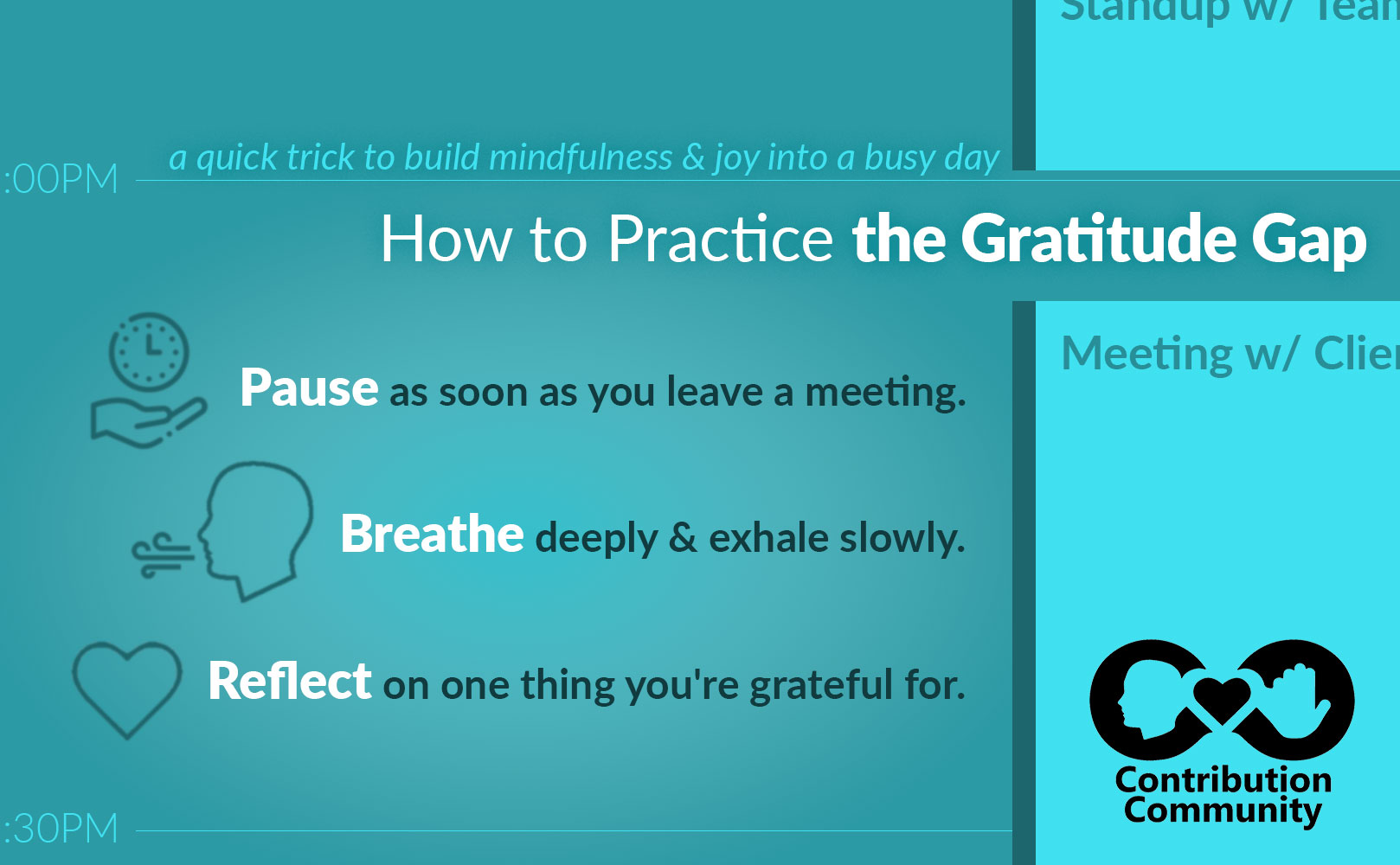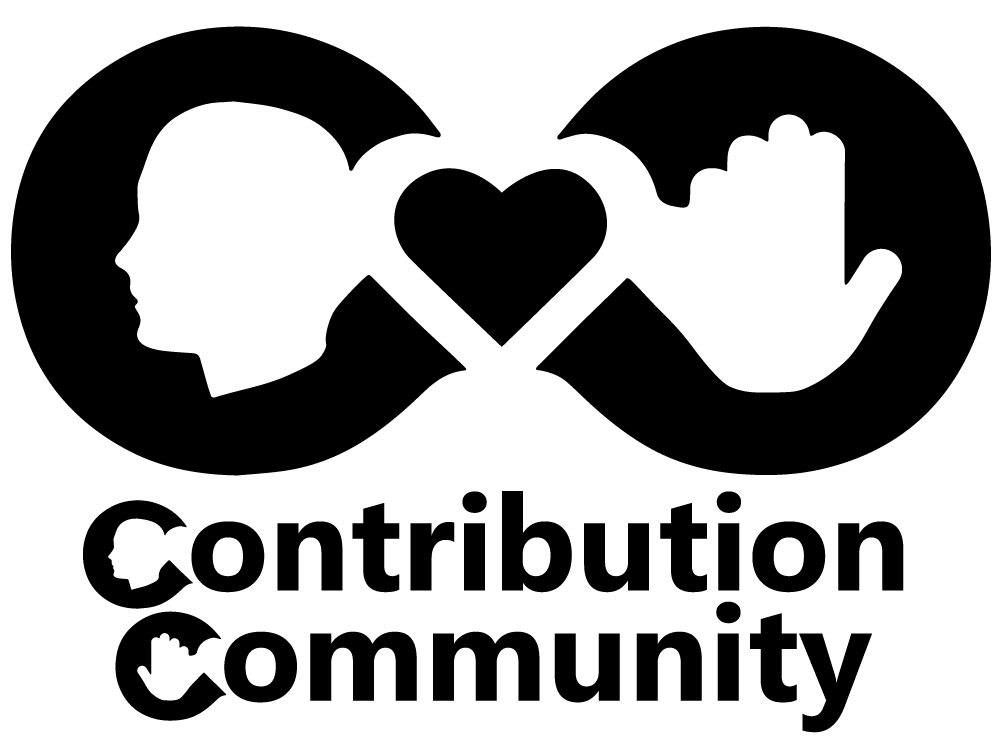The Gratitude Gap

Let’s talk about gratitude. About a month ago we started discussing Priya Parker’s book, The Art of Gathering: How We Meet and Why it Matters. We also hosted Erica Keswin to discuss her book The Rituals Roadmap. Rituals are formative. They give us a chance to embody a value or identity.
Once such ritual that we practice in the Contribution Community is what we call “the Gratitude Gap.” Most of us know we should practice more gratitude and mindfulness, but we might struggle with building the habit. So, we wanted to share a practice that helps do both!
Every time you leave a meeting (or close Zoom), pause to breathe and reflect on one thing you’re grateful for from that meeting. We call it the “Gratitude Gap.”

If you’re not already familiar with the scientifically proven benefits of practicing gratitude here’s 7 benefits of gratitude from Psychology Today. Basically, practicing gratitude makes you healthier, happier, and more resilient to stress. Gratitude isn’t “woo woo” – it’s “woo dang, we really needed this.”
The Calendar Squeeze
C’mon, you’ve felt it. Our calendars are like Triple Stuffed Oreos – it’s just too much! Meeting fatigue is all too real. It’s become even worse during COVID. Teams that weren’t accustomed to remote work made the easy mistake of forgetting to leave space between meetings. So, the result is hour after hour of high-intensity focus. Scroll down to see what non-stop focus looks like in the brain.
If you’re a scheduling a meeting and want to make friends, schedule it to end 5-15 minutes sooner. Or, even better, find a way to not have the meeting in the first place!
1/2 hour meeting ⇢ Give back 5 minutes ⮌
Schedule In gratitude gaps for your team
1 hour meeting ⇢ Give back 10 minutes ⮌
1 hour+ meeting ⇢ Give back 15 minutes ⮌
So, the next time you’re attending back to back meetings, give yourself just 10 seconds to pause, breathe, and find gratitude. You’ll be thankful you did.
SCIENCE BONUS: Check out some of the neuroscience behind meeting fatigue. I shared in this post about the neurological effects of back-to-back meetings. It’s based on a study performed by Microsoft Labs.

You must be logged in to post a comment.